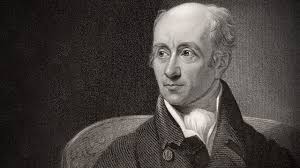Muzio Clementi, an Italian composer, pianist, conductor, and music publisher, left an indelible mark on the landscape of classical music during the late 18th and early 19th centuries. Born on January 23, 1752, in Rome, Clementi displayed extraordinary musical talent from a young age. Recognizing his potential, his father, a silversmith, enrolled him in music lessons.
At the age of 14, Clementi caught the attention of English visitors to Rome, who were impressed by his virtuosic piano playing. They persuaded his father to allow him to accompany them to England, where he would further his musical education. This decision proved pivotal in Clementi’s career, as it led to numerous opportunities and successes.
Upon arriving in England in 1766, Clementi studied with various renowned musicians, including Thomas Attwood and Christian Bach, the youngest son of Johann Sebastian Bach. He quickly gained recognition as a prodigious pianist and composer, captivating audiences with his technical prowess and expressive performances.
Clementi’s compositions encompassed a wide range of genres, including symphonies, piano sonatas, chamber music, and keyboard works. His keyboard sonatas, in particular, are considered masterpieces of the classical repertoire, showcasing his innovative use of form, harmonic language, and pianistic techniques.
In addition to his performing and composing endeavors, Clementi established himself as a prominent music publisher and entrepreneur. In 1798, he founded the firm Clementi & Co., which became one of the most successful music publishing houses of its time. Through his publishing endeavors, Clementi played a significant role in disseminating classical music throughout Europe, contributing to its widespread popularity.
Clementi’s influence extended beyond his compositions and publications. As a teacher, he mentored many aspiring musicians, including John Field and Johann Nepomuk Hummel, who went on to become prominent figures in the musical world.
Throughout his life, Clementi remained dedicated to advancing musical education and promoting the arts. In 1826, he was appointed as the first Professor of Music at the University of Cambridge, a testament to his esteemed reputation as a musician and educator.
Muzio Clementi’s legacy endures as a testament to his contributions to classical music. His compositions continue to be performed and studied worldwide, and his impact on piano technique and pedagogy resonates through generations of musicians. Clementi’s innovative spirit, technical brilliance, and enduring musical legacy ensure his place among the greatest composers of the classical era.


Comments are closed